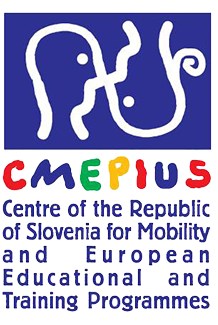Day 3: Society
Welcome to DAY 3 of the learning period of the intensive one week-long event in Interdisciplinary Studies in Developing Cities for People!
On your third day of the intensive week, you will listen to the lectures about the Data Collection, Basic concepts of Gender Studies, Social space approaches of Social Work, Modelling, and Roleplaying in urban scenarios. In Roleplaying exercises, you will have the opportunity to become a person involved directly in the situation of your project area. The acting approach will give your team new knowledge on how to develop strategies to solve problems. Based on the modeling lectures your group work will continue with model-making and presentation of the results from the role-playing.
Your task for DAY 3 is to work on your model and make as many insights as you can about your project area with the help of role-playing.
You can see more information about the work and the content of the third day below.
LECTURES
- prof. dr. Britta Thege (Kiel UAS): Data Collection
- prof. dr. Britta Thege (Kiel UAS): Intercultural Communication
- prof. dr. Britta Thege (Kiel UAS): Migrant women
- dr. Marike Schmeck (Kiel UAS): Basic concepts of Gender Studies
- Lara Bökamp (Kiel UAS): Introduction to Social Work and Community Practice
- prof. dr. Alenka Fikfak (UL), assist. Aleš Švigelj (UL): Role playing
- assist. Aleš Švigelj (UL), prof. dr. Alenka Fikfak (UL): Easy XPS models
ROLE PLAYING
Role-play exercises give students the opportunity to assume the role of a person or act out a given situation. These roles can be performed by individual students, in pairs, or in groups which can play out a more complex scenario. Role plays engage students in real-life situations or scenarios that can be “stressful, unfamiliar, complex, or controversial” which requires them to examine personal feelings toward others and their circumstances (Bonwell & Eison, 1991, p.47).
The game encourages players to actively participate, and develop their ideas and stories because it is about active participation, not passive. “Role-playing” offers those involved a safe space where they can act as someone else and develop certain aspects of thinking from a different position. “Role play” is also an opportunity to practice cognitive skills. The players are presented with challenges that require systematic thinking and encourage players to think “outside the box”, and help them develop new strategies to solve problems.
GROUP WORK
The work of the Day 3 is divided into 2 steps:
- In the first part of the group work day you create the model of the location,
- On the second part of the group work day the team, and other members present, work on the role-playing games around the model – developing first ideas of future development.



